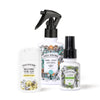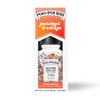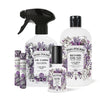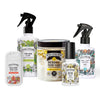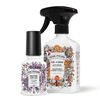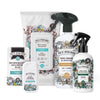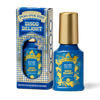What I Learned From Taking Probiotics Religiously
By June Henner
If you haven’t heard about probiotics yet—no worries—I won't judge you! Mainly because I was one of those late-to-the-game people, too. I had been hearing about the health and wellness benefits of these “good bacteria” supplements for years, but didn’t think I had gut issues—boy, was I wrong!
First, let’s get to the bottom of what probiotics are and what they’re typically used for. According to Dr. Adrienne Youdim of Beverly Hills, Calif., probiotics are used to boost the healthy “good bacteria” that live in our gut. “We used to think of these bacteria in terms of their benefits on digestion; they help us extract nutrients and digest food. But more and more they are being associated with other systems in the body, too,” she says.
They *Might* Help Clear Up Your Skin
One “system” I desperately needed help with was my skin. For years I’d experienced horrible eczema on my hands, as well as folliculitus, which manifested as tiny red pimples all over my chest and back. After growing increasingly frustrated by my inability to comfortably shake hands with a stranger or wear a scoop-neck top, I decided to try an eating plan called the candida diet in a desperate last-ditch effort at clearing up my skin for once and for all. Part of my incredibly strict new eating regimen (no grains, no alcohol, no sugar, no dairy) included taking twice-daily probiotics.
After a month or two, my skin miraculously seemed to have fixed itself: my folliculitus cleared up almost entirely, as did the eczema on my hands. I was amazed. Of course, there’s no way of knowing how much of that improvement was due to the probiotics: maybe some, maybe none. But the additional gut-health boost certainly didn’t hurt. Hello, scoop-neck tops!
After a month or two, my skin miraculously seemed to have fixed itself: my folliculitus cleared up almost entirely, as did the eczema on my hands.
They Can Help With Other Issues, Too
Though the link between skin issues and gut flora isn’t medically well-established, it’s being studied more and more. And “a disruption in gut bacteria is associated with a lot of diseases,” says Dr. Youdim. In addition to being proven, in some studies, to help with conditions like IBS and urinary tract infections, there are promising studies showing a link between gut flora and depression, obesity, and cognitive function, per Dr. Youdim.
What this means? It can’t hurt to check in with your doctor and then pop a probiotic. Taking it once a day should suffice, and Youdim suggests looking for a brand that has a minimum of 1 billion CFUs (“colony forming units,” or the number of live bacteria able to split off and form new colonies). Higher numbers of CFUs are even better, though, and she typically suggests grabbing a brand with 30 billion CFUs, if possible. “The higher the number of strains, the better,” she says.
Patience is a Virtue
Of course, if you start taking probiotics today you might not see improvements immediately. “Most things take time,” notes Dr. Youdim. In my case, it took 1-2 months before I started noticing changes to my skin, and I didn’t experience many other physical effects beyond a reduced tendency for post-mealtime gas and belching. But when it comes to digestive concerns like those, probiotics can actually offer relief a little more quickly. “You might have more regular bowel movements and fewer IBS-type symptoms” after taking probiotics for a short period of time, Dr. Youdim says.
I still take probiotics daily, regardless of what I’m eating. I’m no longer on the candida diet and my skin situation is up and down—the eczema tends to flare up with stress—but I use the probiotics as a preventative attempt to help keep things slightly more in the clear. If it’s not broke, don’t fix it!

Shop our Creator and CEO, Suzy's, probiotic blend!



